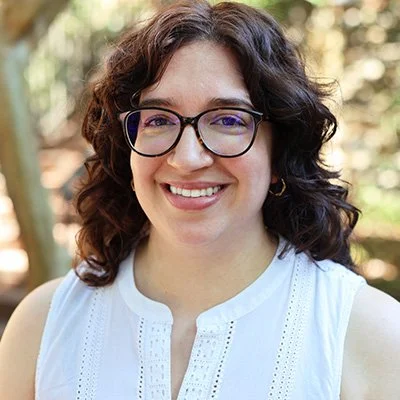Rosa Lane is author of four poetry collections including Called Back (Tupelo Press, 2024) in queer conversation with Emily Dickinson and winner of the 2025 Maine Literary Book Award; Chouteau's Chalk, winner, Georgia Poetry Prize (University of Georgia Press, 2019); Tiller North, winner, 2017 National Indie Excellence Award (Sixteen Rivers Press, 2016); and Roots and Reckonings, a chapbook. Her most recent work won the 2023 Morton Marcus Memorial Poetry Prize, was named Best of Poetry for the 2024 Geminga Prize and selected finalist for the 2023 Gregory O'Donoghue International Poetry Competition (Cork, Ireland) among other awards. Lane’s poems have appeared in Cloudbank, Five Points, Nimrod, RHINO, River Heron Review, Third Coast, and elsewhere. Website: www.rosalane.com
I recently had the pleasure of chatting with Rosa Lane about her latest book Called Back. This is a bold book of lyrical narrative poems that give life to the queer, feminist, and gender-fluid aspects of Emily Dickinson’s work that have often been overlooked and erased. I highly recommend you check it out—you can purchase the book from Tupelo Press.
Meghan Elizabeth Kelley: Rosa, thanks for taking the time to discuss Called Back. I really enjoyed the deep inquiry and reckoning with Dickinson’s life, work, and legacy happening in the book. I’m curious about how you arrived at Dickinson as the subject of your poems.
Rosa Lane: I, like most, first learned of Dickinson in high school English classes as an eccentric poet writing obscure poems of nature and death, who wore white and reclused in her bedroom due to the unrequited love of a mystery man. In spring of 2019 when I came across a collection of letters and letter-poems that Dickinson wrote to her sister-in-law, Susan, in a work entitled Open Me Carefully, Emily Dickinson’s Intimate Letters to Susan Huntington Dickinson (2019, 1998), edited by Ellen Louise Hart and Martha Nell Smith, every previous thought I had about Dickinson flew out the window. Much of what I had been taught faded into folklore.
Meghan: Was there something specific about Open Me Carefully that particularly intrigued you?
Rosa: In their “Introduction,” Hart and Smith described Emily’s love of Susan as one of romantic and erotic passion. They invited readers to find out for themselves. Following their cue, my eyes fell on a letter Dickinson wrote to Susan in late June 1852, about four years before Susan married Austin, Emily’s brother. Emily wrote to Susan, who was away teaching math in Baltimore, “…the expectation once more to see your face again, makes me feel so hot and feverish, and my heart beats so fast…” That is when my chin hit the floor. I couldn’t believe such blatant, homoerotic expressions included not just in this letter but in several letters, considered primary source documents, could be so overlooked by literary scholars. During the pandemic and being housebound, I began re-reading Dickinson with eyes wide open.
Meghan: It sounds like you were really excited by that initial discovery and research, and I’m curious how the book started to emerge from there.
Rosa: The journal I kept with my research notes, which was never meant to see the light of day, morphed into poetry and persona poems, a poetic form I had rarely used; however, I was not the first to write in the persona of Emily Dickinson. Lucie Brock-Broido had done so before me in her 1995 poetry collection, The Master Letters. I conversed with Dickinson’s I-speaker and where that voice held LGBTQ significance, I found a queer voice unheard, if not muted, for over a century. Having grown up in a small New England town, I well knew of Calvinism, its religious judgment, and the town gossip it fueled. As a New England lesbian, who knew of my orientation at a very young age, I identified with Dickinson, not the iconic Dickinson, but the Emily growing up in the socio-religious context and the otherness she spoke to were all too familiar. Writing in the queer persona of an imagined Emily emerged naturally.
Meghan: Emily Dickinson is obviously an incredibly well-known poet. How did you think about adopting such a recognized persona in these poems?
Rosa: Appropriating the voice of a dead poet, especially the queer voice of one of America’s most famous poets, required deep inquiry and responsibility. This appropriation had to be earned by in-depth research including study of Amherst, Massachusetts in the 19th century; geography; sounds of the town; when the first train arrived; family structure; 19th-century female life and societal norms and expectations; Calvinism; one hundred plus years of literary scholarship on Dickinson; dangers of perverse presentism; and of course daily reading and re-reading Dickinson’s poems and letters, which were their own testament as Hart and Smith presented in their introduction to Open Me Carefully.
Meghan: As you referenced earlier, the queerness and gender fluidity of Dickinson’s work are often not highlighted, particularly in traditional educational settings. What was it like to write into this space of erasure?
Rosa: The more I read, the more disturbed I grew at the erasure. First, I had the challenge of decoding many of Dickinson’s poems. Judith Farr, a Dickinson scholar, in her work The Passion of Emily Dickinson (1992) identified code names Dickinson used for Sue, such as Eden, heaven, pearl, among others. Yet, in another poem, #J1737, Dickinson is explicit. For example, in the first of five quatrains, her female I-speaker exclaims two blatant demands: “Amputate my freckled Bosom! / Make me bearded like a man!” The I-speaker’s demand for gender transfiguration is explosive and to which my poem “Paire de corps” responds.
Another challenge had to do with a self-imposed erasure and my struggle with the question as to whether to go public with poetic writings from my private journey and the lesbianism and gender fluidity I found in Dickinson’s work. I questioned who was I to speak in the queer voice of an imagined Emily, one of America’s greatest poets? Why me? After consulting my poet friend Stephen Haven on this question and upon receiving his encouragement, I sent out one poem, “Dear Sir, (No. 7),” as a litmus test. Weeks later when this poem not only was accepted for publication, but also placed for the Pablo Neruda Poetry Prize, I had my nod. About six months later, my manuscript entitled Called Back was selected for publication by Tupelo Press from 1,300+ manuscripts during its 2022 Summer Open Reading Period.
Meghan: One of the things that stayed with me after reading Called Back was the musicality of these poems. In the poem “Poiesis,” for example, you write: “Ruby throats unzip / the page / recto holds / a steed clamped / between legs.” How did you balance this musicality while staying true to Dickinson’s work?
Rosa: Reading Dickinson’s 1789 poems out-loud revealed a cadence that carried over into my own poem making. Sometimes I read as many as 100 Dickinson poems in a day, while other days I could read only one Dickinson poem. Some days I felt like her high school chum and other days like a deathbed attendant. Editing was an out-loud process—likened perhaps to the genre of spoken word poetry. This process occurred daily right up to the last day and hour of Tupelo Press’s absolute deadline for my submittal of the final manuscript. It was strange how some words rang wrong. What might have flown by one day would clunk the next. This iterative process and word search continued throughout the entire process. I was thankful that Tupelo allowed me more than 1-1/2 years of editing.
Meghan: As a reader, I was really captivated by the amount of care and attention I could tell was spent crafting these poems. Thanks so much for sharing the journey and process with us!
To follow or connect with Lane:
Goodreads: goodreads.com/author/show/15086129.Rosa_Lane
Facebook: facebook.com/rosa.lane.3954
Instagram: instagram.com/rosalanepoet
TikTok: tiktok.com/@rosalane_poet
Bluesky: @rosalane145.bsky.social
Meghan Elizabeth Kelley is a writer and poet from the Philadelphia area. Her work has appeared or is forthcoming in Epiphany Magazine, Bellingham Review, HAD, and Toyon: Multilingual Literary Magazine, among other places. She has an MFA from Randolph College.




